Christian

Pope Francis condemned the suspected chemical weapons attack that killed over 100 people in Syria and renewed his call for an urgent political solution to end the war. Speaking at his weekly audience at the Vatican on April 5, the pope said he was horrified by the “unacceptable” massacre of civilians, including at least 20 children, on April 4.
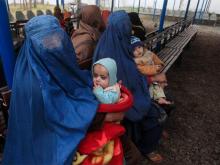
Within 20 years, the number of Muslim babies being born is expected to surpass Christian births — though there will still be more Christians in the world. Muslims currently account for about 24 percent of the world population, compared to 31 percent for Christians, according to the Pew Research Center.
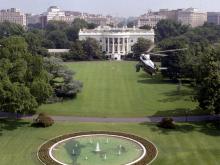
Since winning the election with strong support from conservative evangelical voters, President Trump has invited their leaders to the White House, and banned government funding for groups that support or perform abortions overseas.
But he has yet to move on one item that many of them care about.
No one has been named to direct the Office of Faith-based and Neighborhood Partnerships, which, since 2001, has linked government with a broad range of religious groups.
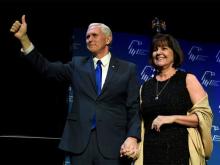
A recent Washington Post profile of Karen Pence mentioned that her husband, Vice President Mike Pence, never eats alone with another woman or goes without her to events where alcohol is being served.
Twitter erupted with outrage and ridicule.
But the Indiana Republican’s practice is not unusual in many conservative Christian circles. As Emma Green pointed out in The Atlantic, it likely stems from something called “the Billy Graham Rule,” named for the 98-year-old international evangelist. Nor is it that much different in intention from the practices of conservative Jews and Muslims.
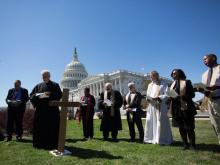
With ashes on their foreheads, sackcloth draped around their necks, and the U.S. Capitol as a backdrop, Christians leaders used the words “evil” and “immoral” to describe the federal budget cuts President Trump has proposed and many Republican lawmakers favor.
“It is a time for lamentation,” said the Rev. David Beckmann, explaining the symbols of grief the clergy brought to Capitol Hill on March 29.

The May 13 speech at Liberty’s football stadium in Lynchburg, Va., will be Trump’s first commencement address as president, but it won’t be his first at Liberty, which describes itself as the largest Christian university in the world.
The then-presidential candidate spoke last year at the university’s Convocation, promising, “I will protect Christians,” and famously stumbling over a reference to “Two Corinthians.”
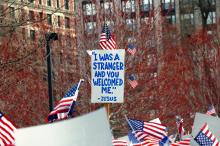
Since it was unveiled last week, President Trump’s proposed budget has been widely denounced as “immoral” and downright “evil” for boosting defense spending by billions while demanding drastic cuts to vital aid programs.
Yet if liberals and some conservatives are upset about cuts to programs that help ensure clean drinking water, give financial aid to low-income college students, and even help support Meals on Wheels — which delivers nearly a million meals a day to the sick and elderly — would Jesus have a problem with slashing assistance to the needy?
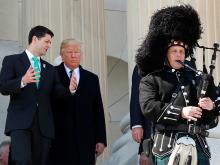
Religious leaders, including some who spoke at President Trump’s inauguration, are calling on Congress to protect foreign aid that helps the needy across the globe.
Trump’s 2018 budget proposal calls for $25.6 billion in funding for the State Department and the U.S. Agency for International Development. That’s a decrease of $10.1 billion, or 28 percent, from the 2017 budget.

If you don’t need or want insurance, some ask, why should you have to pay for other people’s coverage?
I know people who think this way, and they resent having the government obligate them to pay into the system.
Understanding that many Americans struggle and pay a high cost under the Affordable Care Act, we cannot really blame some for holding this position. But responsible citizenship compels us to take a broader view.
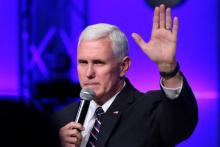
A decade ago, a critic accused me of writing a book about a “nonexistent” threat from the religious right. One reviewer called my work a “paranoid rant,” while another detractor wrote my “alarmist” views were “exaggerated and implausible.”
In The Baptizing of America: The Religious Right’s Plans For The Rest Of Us, published in 2006, I had warned that a well-financed and highly organized group of religious and political leaders was seeking to impose their narrow extremist beliefs and harsh public policies on the United States, even as our nation’s population was increasingly multireligious, multiethnic, and multiracial.
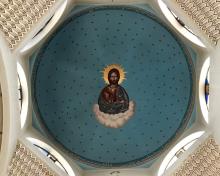
We’re in a bombed-out church in the heart of Mosul, where ISIS had painted a giant black flag on the cross out front.
Where thousands of Christian homes were marked with the Arabic letter “N,” their lives threatened with the sword, their possessions looted, families ultimately driven out of their ancestral neighborhoods like cattle.
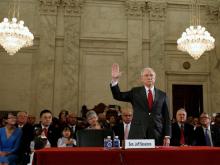
Senator Jeff Sessions of Alabama recently raised eyebrows during his confirmation hearing for attorney general when he expressed doubts that secular people respected the truth as much as did those with religious convictions. Even as he insisted that there should be no religious tests for holding public office, Sessions was queasy about the potential dangers of the secular worldview.

President Donald Trump vowed to make good on a campaign promise to repeal the law that restricts political speech from the pulpit, speaking at his first National Prayer Breakfast as president.
“I will get rid of, totally destroy, the Johnson Amendment, and allow representatives of faith to speak freely and without fear,” he said on Feb. 2 to a gathering of 3,500 faith leaders, politicians, and other dignitaries from around the world, including King Abdullah of Jordan.

On Jan. 21, I’ll join thousands in D.C. for the Women’s March on Washington. My first stop will be at a local congregation, one of several hosting a prayer service and warming station for marchers. I’m an anti-racist, feminist, Christian, and for me, faith will be part of the day.
I’ve been disappointed with Christian silence, and even active resistance, to social justice imperatives, but my commitments to justice stem from my faith, and that’s why I march.

Republican South Carolina Gov. Nikki Haley will be a rare woman on Donald Trump’s Cabinet-level team, and one of the few persons of color.
Knowing little about her foreign policy positions, given that she has little to no international experience, what should we expect from Haley once she is confirmed to be ambassador to the United Nations?
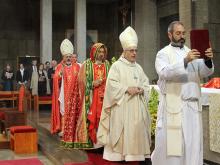
While the Iraqi conflict is far from over — a battle is now raging in the strategic city of Mosul, although government forces have gained ground against Islamic State militants — Mirkis focused many of his remarks on how to heal his deeply divided country.

Washington National Cathedral was founded in 1907 and envisioned as a “Westminster Abbey for America,” which, in part, is why it finds itself at the center of controversy about its role in President-elect Donald J. Trump’s impending inauguration.
For more than a century, the cathedral has tried to stand in two worlds at once, attempting to be both a practicing Christian church and a gathering place for American civic expression. As the cathedral’s former dean, I believe that fidelity to the former role now requires rejecting the latter.
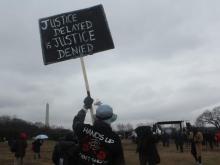
Crying out “no justice, no peace,” crowds joined the Rev. Al Sharpton in a weekend march towards the Martin Luther King Jr. Memorial, vowing not to let President-elect Donald Trump turn back strides made by the civil rights leader.
The mostly African-American throng — smaller than the thousands expected, due to the steady rain — heard from civic and religious leaders about key areas of concern: health care, voting rights, economic equality, and police brutality and reform.
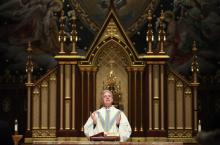
It has also been five months since Myers suspended me from all priestly ministry, for my “disobedience” in continuing to be involved with that same work against LGBT discrimination.
That’s given me a lot of time to think about what would happen when a new archbishop came to Newark, and what my future would be.

Sessions has long been, in the words of one prominent immigration advocate, the “most anti-immigrant senator in the chamber.” When George W. Bush, a self-styled “compassionate conservative” and born-again Christian, pushed a comprehensive immigration reform bill in 2007 that was supported by many business and law-enforcement officials, Sessions railed against what he called the “no illegal alien left behind bill” and led the charge against the failed effort. “Good fences make good neighbors,” he said at a press conference the year before.